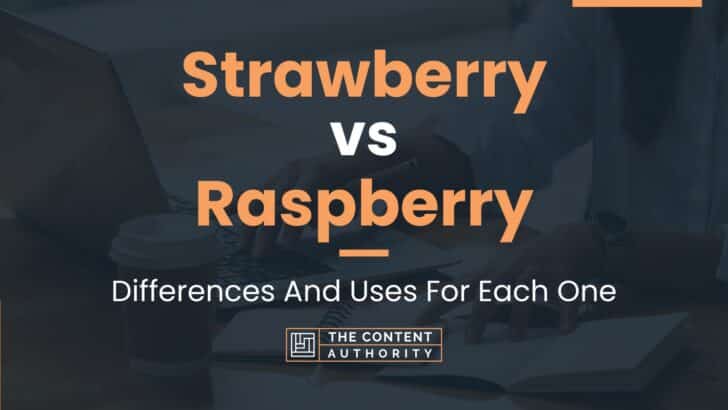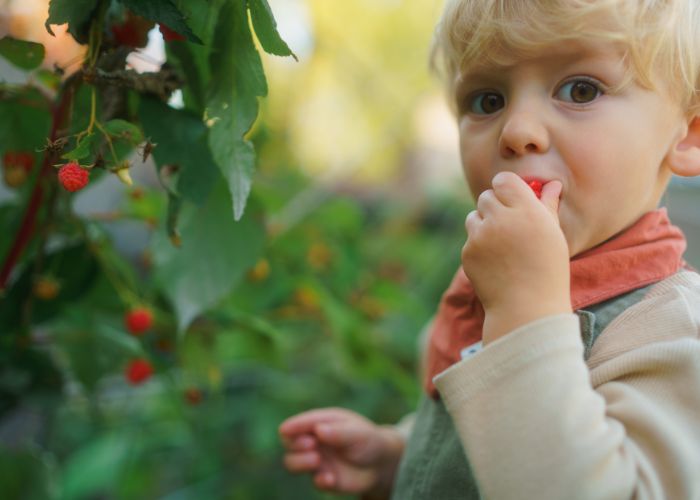When it comes to delicious, juicy, summery fruits, raspberries and strawberries top the list for many But how do these fruity favorites compare when looking closely at their size and anatomy? Let’s explore the intriguing distinctions.
Raspberry Construction: Many Mini Fruits
Though considered a single fruit, botanically speaking, each raspberry is actually an aggregation of around 100 tiny individual fruits together known as drupelets
- The drupelets are arranged around a hollow central core and fused together to create what we recognize as a raspberry
- Each drupelet contains a tiny seed and pulp that forms the edible part surrounding it.
- The drupelets easily separate when picked, which is why raspberries appear hollow when you look at the underside.
- Their petite size and delicate nature make raspberries more perishable than other fruits.
- On average, a raspberry measures 1–2 centimeters wide and weighs 3–5 grams.
Strawberry Structure: Big Berries with Seeds
The anatomy of a strawberry differs quite a bit from a raspberry.
- Strawberries are an accessory fruit, meaning the fleshy part is derived not from the plant’s ovaries but from the receptacle that holds the ovaries.
- What we think of as “seeds” on the outside of strawberries are actually the dried ovaries of the flower with tiny seeds inside of them.
- The seeds are the true fruit and the red juicy part that surrounds them is the swollen receptacle.
- Compared to the many tiny aggregated drupelets of a raspberry, strawberries are bigger and heartier.
- The average strawberry is 2–5 centimeters wide and weighs 10–20 grams.
Why Such Differing Sizes and Shapes?
The contrasting constructions and dimensions of raspberries versus strawberries come down to how the plants propagate and spread their seeds.
- Raspberries: The goal is seed dispersion. Like other aggregate fruits, raspberries contain numerous small fruits to distribute the seeds far and wide via birds, animals, wind, water, etc. The more drupelets, the more opportunity for seed propagation.
- Strawberries: The goal is seed protection. Accessory fruits shield and embed the seeds to keep them safe and give them the best chance of growing once deposited in soil. Only a few seeds are produced and each is encased in a sturdy ovary with extra padding from the juicy receptacle.
So the next time you enjoy these delicious treats, remember – their sizes and structures have evolved to help the plants survive!
A Closer Look: Raspberry vs Strawberry Appearance
Beyond basic size and anatomy, raspberries and strawberries have distinct appearances:
- Color: Raspberries come in a range of hues from red to purple to black while strawberries are known for their bright red color.
- Shape: Raspberries are more rounded while strawberries have the iconic heart-like shape with tapered tips.
- Surface Texture: Raspberries have a bumpy, segmented surface thanks to all the individual drupelets. Strawberries appear smoother and plumper.
- Flesh: Raspberry flesh is hollow and separates easily into drupelets when picked. Strawberries have firmer, solid flesh without hollow spaces.
- Seeds: Raspberries have tiny seeds embedded in each drupelet. Strawberry seeds stick out on the exterior surface.
- Cavity: Raspberries have a hollow core cavity. Strawberries do not have a cavity.
- Caps: Some raspberries still have the tiny caps that topped each drupelet. Strawberries lost their caps (calyx) when picked.
Berry Size Stats: How Big is Biggest?
Now let’s quantify the size difference between average raspberries and strawberries:
- Raspberry width: 1 – 2 cm
- Strawberry width: 2 – 5 cm
- Raspberry weight: 3 – 5 grams
- Strawberry weight: 10 – 20 grams
So on the low end, strawberries can be 2 times wider and weigh over 3 times more than raspberries. On the high end, they can eclipse raspberries 5 times over in width and up to 4 times in weight!
That’s quite a sizeable difference between two tiny fruits. Keep this scale in mind the next time you add a mix of berries to your morning yogurt or smoothie.
Growth and Harvest Impacts Size
Growing conditions and harvest timing also influence the ultimate sizes of raspberries and strawberries:
Factors Affecting Raspberry Size
- Cultivar: Heritage varieties yield smaller berries than newer hybrid cultivars bred for bigger fruit.
- Weather: Insufficient rain or sunlight during growing leads to smaller drupelets.
- Fertilization: Poor pollination of flowers means fewer fully developed drupelets.
- Harvesting: Early picked berries are often smaller.
Factors Affecting Strawberry Size
- Variety: Different cultivars produce different size berries based on genetics.
- Age of plant: Older strawberry plants tend to bear bigger berries.
- Growing practices: Things like proper planting spacing, pruning, and fertilizing boost size.
- Weather conditions: Warm sunny weather fills berries out more than cool overcast conditions.
- Time of harvest: Early season berries are generally smaller than late season ones.
So the way these fruits are grown and chosen for harvest introduces additional size variability beyond the averages.
Prepping and Serving Tips Based on Size
The dainty drupelet construction of raspberries versus the heartier structure of strawberries means slight differences in how to handle them in the kitchen:
Raspberries:
- Rinse gently to avoid breaking them apart
- Leave whole rather than cutting or slicing
- Take care not to crush when combining into batters or fillings
- Best for eating raw or incorporating into no-bake recipes
Strawberries:
- Remove caps and stems
- Can slice or quarter without falling apart
- Often mashed for purees or crushed for juices
- Stand up well to cooking methods like baking or simmering into compotes
- Can be frozen whole without excessive damage to texture
So consider the size and anatomy when prepping these summer treats!
Nutrition: How Do Raspberries and Strawberries Compare?
Now that we’ve covered physical attributes, how do raspberries and strawberries stack up nutritionally?
Calories and macronutrients
- Raspberries have more calories, protein, fat and carbs than strawberries per 100g serving.
- The extra carbs in raspberries come from fiber. The net carbs are similar.
Vitamins
- Raspberries contain higher amounts of vitamins C, K, E and B vitamins.
- But strawberries provide more folate.
Minerals
- Raspberries win out with greater quantities of minerals including manganese, magnesium, iron, and zinc.
- Strawberries best raspberries only in selenium content.
Phytochemicals
- Raspberries supply more assorted phytonutrients and polyphenol antioxidants.
- Strawberries are very high in flavonoid antioxidants.
So while plumper strawberries edge out raspberries in a few specific nutrients, petite power-packed raspberries prevail overall nutritionally. Their numerous tiny drupelets pack a punch!
Price Points: Raspberry vs. Strawberry Costs
Due to greater fragility, tendency to crush or mold, and short growing season, fresh raspberries are more expensive than strawberries, typically:
- Raspberries: $3 – $6 USD per 6 oz container
- Strawberries: $2 – $4 USD per 1 lb package
This makes strawberries generally 30-50% cheaper per pound than raspberries when comparing bulk retail prices. Of course, prices fluctuate depending on location, season, availability and whether conventional or organic.
But the economic law of supply and demand means the more delicate and fleeting fruit commands a higher price – raspberries in this case!
Berry Basket: Best Uses for Raspberries vs Strawberries
Keep the strengths of each berry in mind when selecting them at the market and using them in recipes:
Raspberries shine when:
- Used fresh and whole rather than cooked down
- Combined into cold dishes like smoothies, yogurt, cream
- Made into jams or compotes with minimal heating
- Frozen for later use in baked goods or smoothies
Strawberries perform best when:
- Sliced or mashed to release juices
- Baked into crisps, pies, tarts, and galettes
- Simmered into sauces or syrups as flavor concentrates
- Puréed fresh or thawed from frozen state into countless treats
Why You Are Not Getting Any Strawberries
FAQ
Are strawberries or raspberries made up of smaller fruits?
What is the difference between strawberry and raspberry?
Why are strawberries and raspberries not berries?
What is more healthy, strawberries or raspberries?
- The Ultimate Guide to Growing Strawberries in Raised Beds - August 8, 2025
- No-Dig Garden Beds: The Easiest Way to Grow a Beautiful Garden - August 6, 2025
- How to Protect and Preserve Wood for Raised Garden Beds - August 6, 2025


